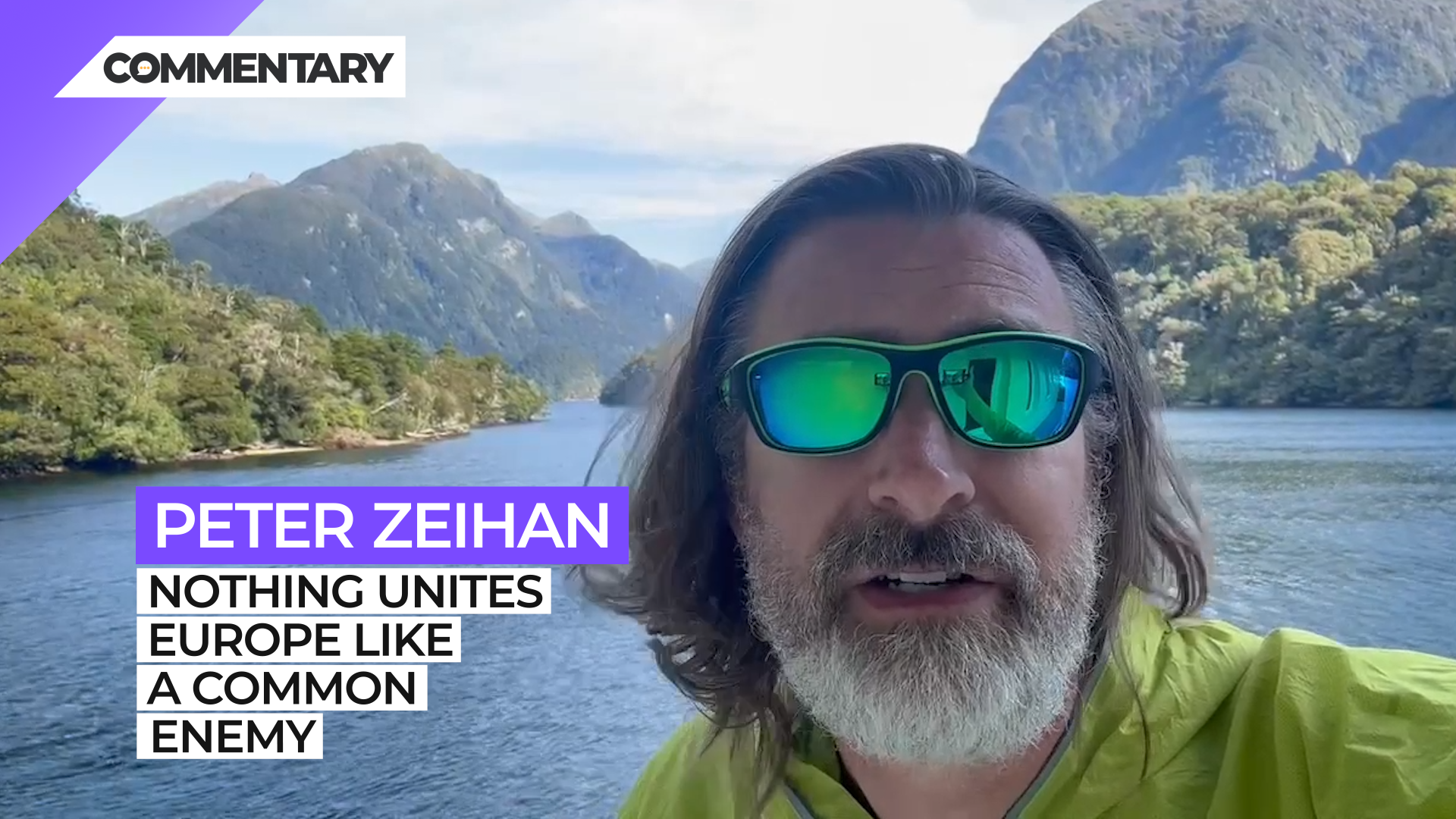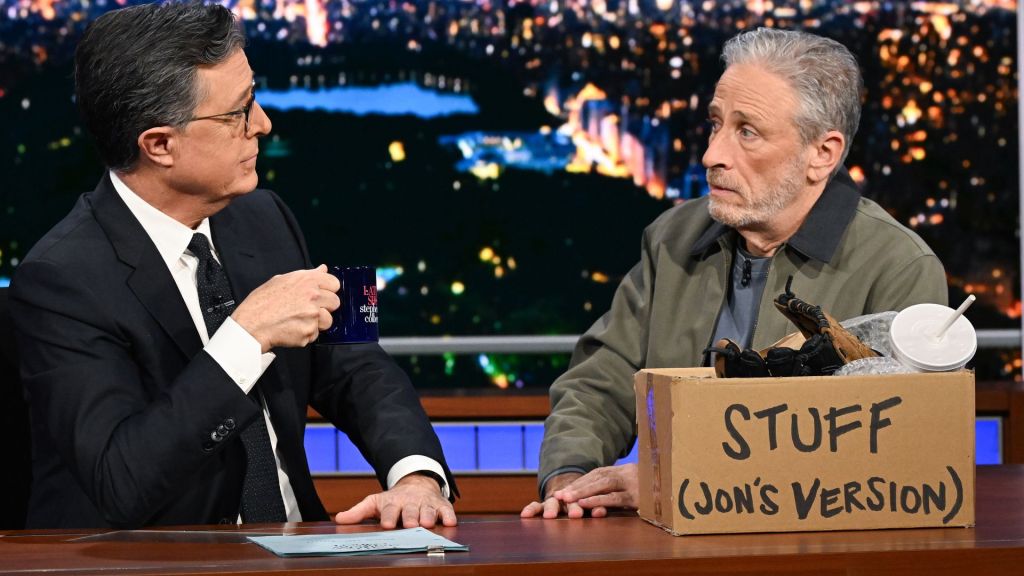
Commentary
-
Our commentary partners will help you reach your own conclusions on complex topics.
Hi everyone, Peter Zeihan here coming to you from Doubtful sound in New Zealand’s Fjordland National Park. Anyway, a lot of things have gone down in the Ukraine space politically not so much militarily. And I thought it was worth kind of looking at what the big picture is. And to understand where we’re going forward, we have to go back. If you go to the world before 1945, the age of European competition, you had shifting alliances, because the geography really prevented the area from coalescing into a single entity. So on your Northern European plan, you’ve got the French, the Dutch, the Belgians, the Poles, and the Germans, who if you know, if there was ever going to be a zone where someone controlled everything would be them. And so most chapters of history had been one of those powers trying to assert control over the others. Now you got Scandinavia and in the north with half fjords, and peninsulas and islands, so always fiercely independent and very neighborly oriented compared to everyone else. In the south, you’ve got a more occluded coastline with very few navigable rivers of any type. And so you get regional powers who are relatively isolated from the others, but it could really punch above their weight, economically, because they’re all trade oriented, whether that’s in Spain, or Portugal, or Italy, or the Balkans makes for a bit of a mess. And so for most of the half millennia, leading up to 1945, it was kind of a war of all against all was shifting alliances here and there. Always changing texture, always changing sides. Then the Americans came in, in World War Two, and the Soviets rose during World War Two become major powers who injected themselves into this competition, and kind of changed the rules of the game, the suddenly had these two outside ish powers who were determining all the major decisions, and we kind of forgot that Europe was the most blood soaked part of the planet until that point. Now with 1990, and the end of the Cold War, the Europeans have been living in a vacation from history, where the security paradigms of the Cold War exist without the security threat of the Cold War. You combine that with the late globalization period, and a time when pretty much all of the world was open for business. And you got a very different sort of environment economically, and especially politically, well, the Russians now are kind of climbing back climbing out of their post Soviet hole and attempting to reassert themselves as a major regional power. And whether you believe they’re doing this out of stupid reasons or same security reasons, doesn’t really matter. They’re trying to change the nature of the system for their own long term benefit. And that is forcing countries to do something that they haven’t had to do for decades, take a side take a position and form an alliance to counter the Russians. Now, from the Russian point of view, it’s all about the Americans all the time, turn over here, look at this view. It’s all about the Americans all the time, and everything that’s going wrong for the Russians can be laid to the Americans feet, but that is to completely ignore the history of Europe, which is that of a series of independent and semi independent primary and secondary powers. So what is kind of shaken out this week? Well, first, and most importantly, the German leper tanks, mainline battle tanks have finally reached the war. And so now the Germans have fallen to this position of we don’t want to be in a leadership position. We know what that has looked like in the past, we understand why everyone was nervous about it. Well, we don’t have a choice. We are the largest economic power in the northern European plane, the largest economic power in Europe. And historically speaking, we have also been the most powerful military force, we have to take a leadership position because if we don’t, this is all going to fall apart. And we will be facing the Russians on the plains of Poland. And we know exactly where that leads. And we don’t want that.
This has a lot of depth because the Dutch also on the northern European plane are into the hilt. So are the poles the French are contributing in a way we haven’t seen the French contribute to multinational operations since World War Two. And even further back, technically off the plane places like Spain and Portugal, Portugal tanks arrive with the German ones, and the Spanish ones will be there within a month. So everyone in that kind of strip of what you think of as core Europe is already fully committed. And back in the game, Scandinavia is a little bit different. Here, you’ve got mostly independent city states that masquerade as countries and then Sweden, which has kind of been out of the game for three centuries. By the end of next week, Turkey will have voted on whether or not to let the Finns into NATO, and then a vote on Sweden will probably go within a couple of months of that. And that means that these two traditionally neutral powers are going to be taking a leadership position in security policy in Europe, and the only issue they care about are the Russians. Now, the Swedes have been out of the game for three centuries after a massive military defeat. And what is today is Ukraine. And in the aftermath of World War Two, the Finns were forced into a degree of neutrality, where they could shard their own economic course, but on any sort of security decision.
Decision Making the Soviets had full veto power. Well, that is now gone. And these two countries that have very strong militaries relative to their size economically or in terms of population, all of a sudden are the harbingers of the apocalypse when it comes to the Russian point of view of how European security should go, because they are extraordinarily anti Russian. Every security question that they have ever faced, has been framed in the context of what do we do the day the Russians invade, everything else is around that. And now they’re about to be part of the decision making our architecture.
That also means that the Turks are coming in from the cold, or they’ve been trying to kind of have a cake and eat it too. But in the last few weeks, they’ve joined the sanctions regime, relatively forthrightly, and are now no longer an avenue that the Russians can use to evade the sanctions regime, especially when it comes to materials import things like semiconductors. And then finally, of course, there’s the United Kingdom, the United Kingdom was always going to be anti Russian, because it’s a naval power on an island. And anytime it looks like a land power in Europe is gonna become more potent. They get a little nervous, and they want to make sure that the land powers are busy with land issues, so they can’t float navies that can challenge London.
Well, King Charles was just coronated in his first full state visit is to Germany, if there are two countries in the European space that tend to be on opposite sides of all economic and security questions. It’s the United Kingdom and it’s Germany. And the fact that they’re within sight of one another is something that should turn anyone on the opposite side of that axis to turn the blood cold. So what we’re seeing here for the first time, not in decades, but in centuries, is everyone in Central and Western Europe at the same time, coming together to form a broad coalition against a single power. We haven’t had that since Napoleon, if you want to get technical, we haven’t had that since the Treaty of Westphalia. And the Americans while they are a part of all of this, are not steering this part of the equation. This is the Europeans doing what makes sense to the Europeans. And if I were the Russians, I’d be very concerned about that.
-
Hurricane Helene hits US coast, Appalachia and beyond
Hurricane Helene hit Florida and Georgia overnight between Sept. 26 and 27 as a Category 4 hurricane, and accompanying storms will continue reaching deeper into the continental United States today. Dangerous flash flooding from the hurricane, known as storm surge, was some of the worst flooding that the Tampa Bay area has ever seen, and… -
Israel holds upper hand against Lebanon, Hezbollah and Iran
On Wednesday, Sept. 25, Hezbollah launched a ballistic missile at Tel Aviv in retaliation for Israel’s explosive pager attack that blew up devices across Lebanon. Although Israel’s defense systems intercepted the surface-to-surface missile, the attempted strike on Tel Aviv marked a significant escalation by Hezbollah. Since the siege on Gaza began, shortly after the Oct. 7, 2023,… -
The Sinaloa Cartel civil war
Fears of a civil war within the Sinaloa Cartel are growing as violence between competing factions within the cartel continues. The Mexican Army has dispatched around 600 elite troops to Sinaloa to help quell those fears, in addition to roughly 2,200 regular soldiers and National Guard. Watch the above video as Straight Arrow News contributor… -
New Ukrainian weapons hit Russia where it hurts
Ukrainian drones struck a major Russian ammunition depot, triggering a massive explosion that was captured on camera. According to the Ukrainian military, 2,000 tons of munitions had arrived at the depot before the attack. Over the past two years, Ukraine has significantly increased its domestic drone production, allowing it to scale up attacks on military… -
Weighing social costs vs. economic benefits on immigration
Global human migration is one of the defining elements of our current historical era, according to the United Nations. Migrants face both the incentives to leave — forced out by climate change, crime and corruption, extreme poverty or violence — and incentives for where to go, based on available job opportunities and so on. Migration…
Latest Stories
-
 Dept. of Defense
Dept. of Defense
A return to the Cold War? UK poised to house US nuclear weapons yet again
-
 Getty Images
Getty Images
Melania Trump backs ‘Take It Down Act’ targeting AI deepfake, revenge porn
-
 Getty Images
Getty Images
Top FBI official in NY retires amid apparent conflict with Trump admin
-

How US crypto holdings compare to other nations
-
 Getty Images
Getty Images
Israel proposes alternative plan for hostage deal with Hamas
Popular Opinions
-
In addition to the facts, we believe it’s vital to hear perspectives from all sides of the political spectrum.
Latest Opinions
In addition to the facts, we believe it’s vital to hear perspectives from all sides of the political spectrum. We hope these different voices will help you reach your own conclusions.
The opinions published in this section are solely those of the contributors and do not reflect the views of Straight Arrow News.





















Latest Commentary
We know it is important to hear from a diverse range of observers on the complex topics we face and believe our commentary partners will help you reach your own conclusions.
The commentaries published in this section are solely those of the contributors and do not reflect the views of Straight Arrow News.
Dr. Frank Luntz
Pollster and Political Analyst‘Biased’: What Americans think of ‘mainstream media’
‘Getting rid of them’: Americans discuss Trump and immigration
‘Woke’: Why some Biden 2020 voters backed Trump in 2024